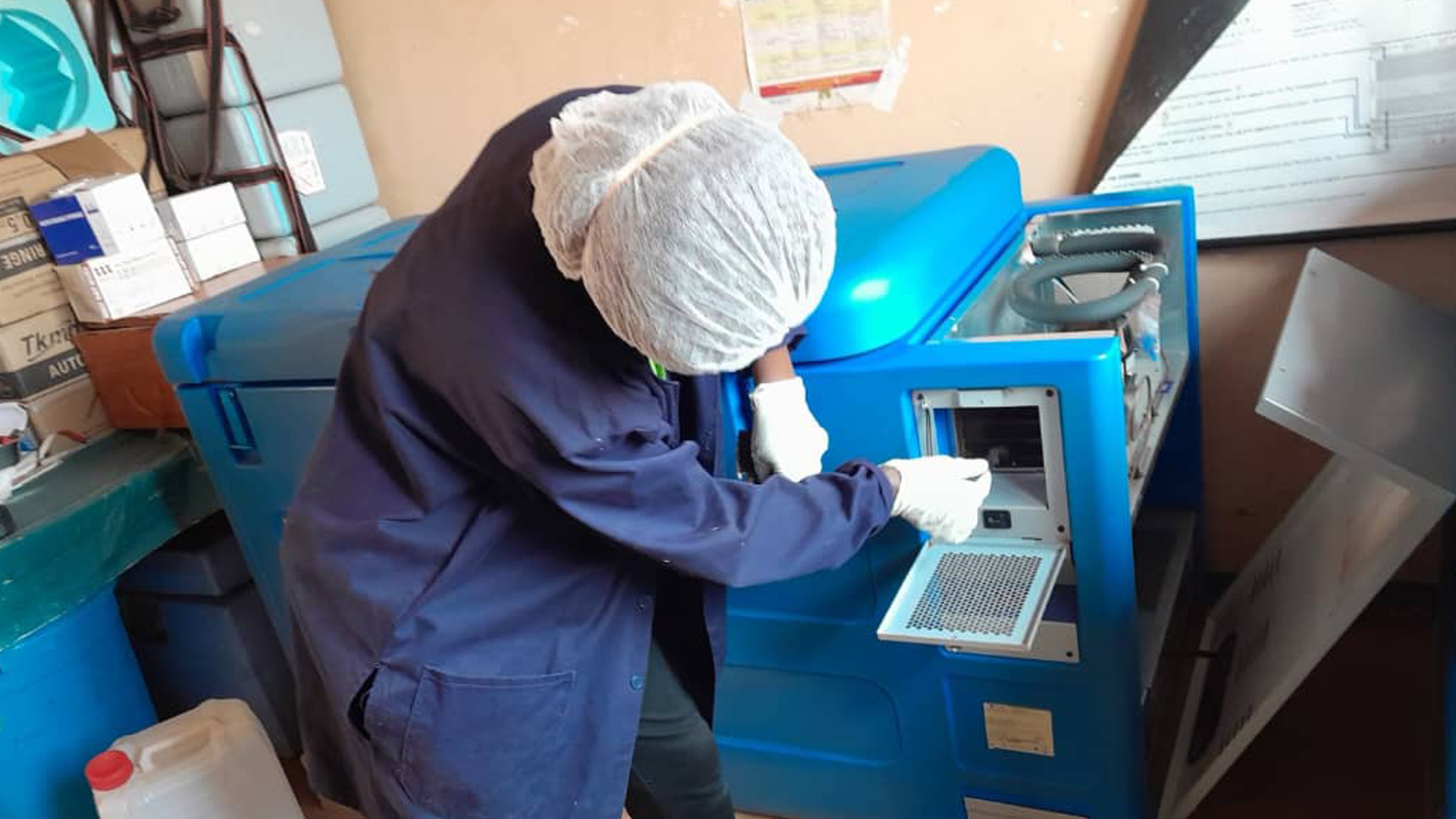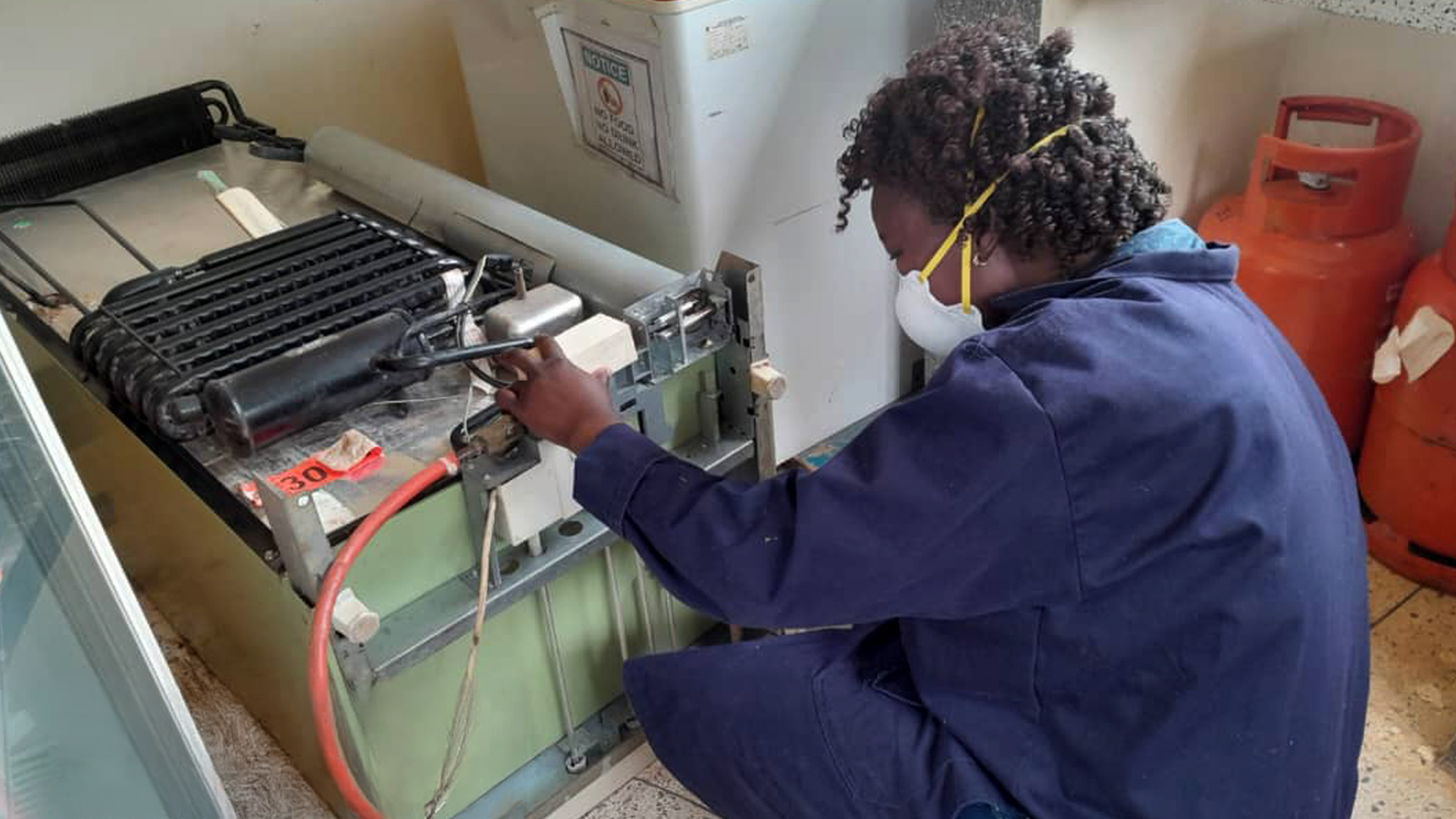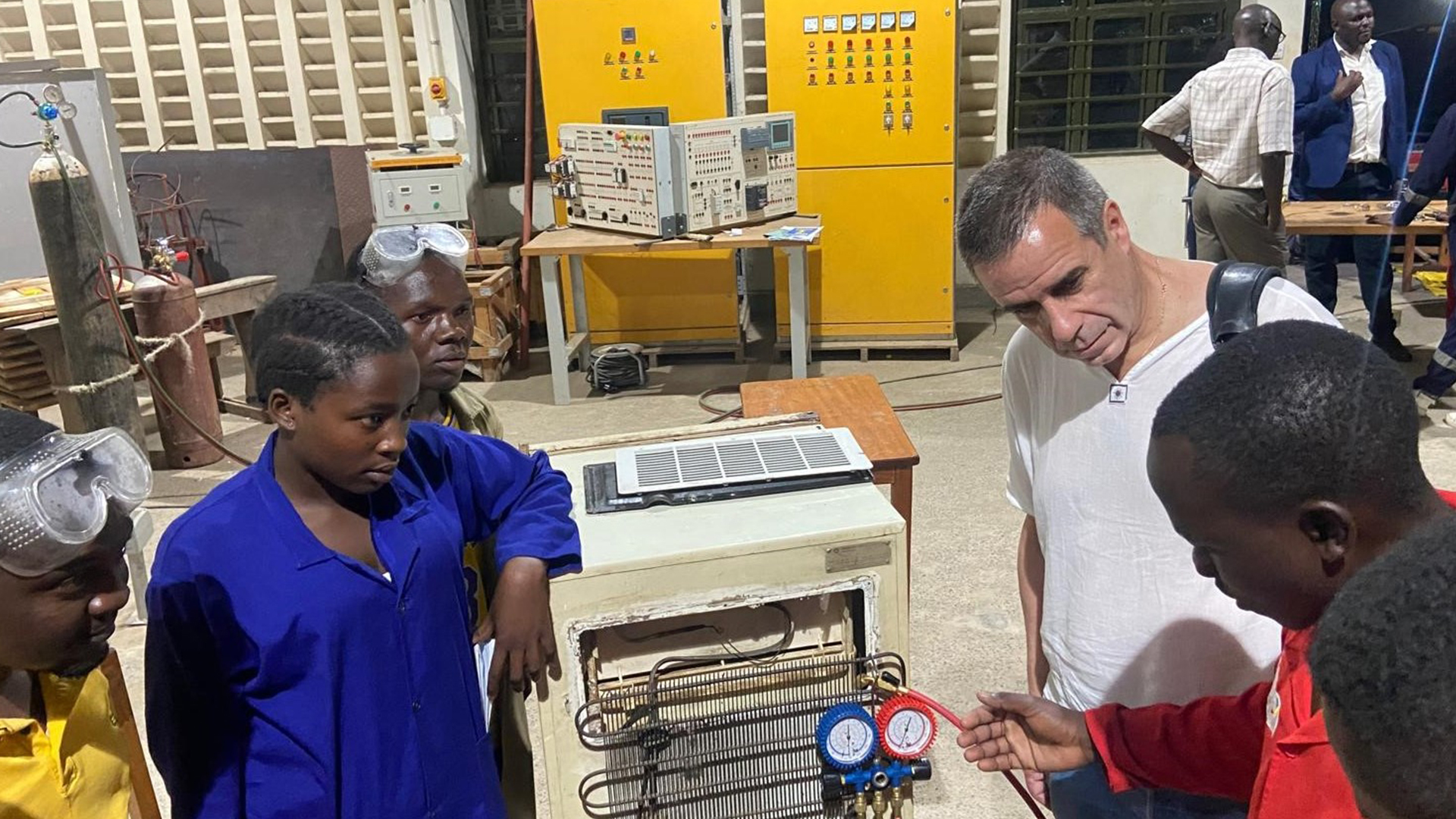

Skills for saving lives, delivering climate solutions while protecting the planet
06 November 2024 Jayaraj Manepalli

When Asuru Antazia heard about the training programme for refrigeration and air conditioning technicians being offered at the Amelo Technical Institute in the neighbouring Adjumani district, she was excited and readily signed up.
Hailing from Obongi district in Northern part of Uganda, Asuru was inspired by engineers and their work since childhood. Constantly motivated by her mother who encouraged her to never give up on her dreams, Asuru ended up pursuing refrigeration engineering course at the Uganda Technical College, Elgon.
“Even though the course was rigorous, the opportunity for practical work was limited. So, when I came to know about the five-day training offered by United Nations Industrial Development Organization (UNIDO), I was keen on learning the international best practices in cooling,” she says.
The growing cooling challenge
With an estimated 3.6 billion cooling appliances in use today globally, the demand is only increasing - expected to reach 9.5 billion units by 2050. Providing cooling for all who will need it in a warming world - and not just to those who can afford it - could require 14 billion cooling appliances by 2050.
In Uganda by 2030, the number of domestic refrigerators in use will increase to 660,000 units and room air conditioners to 230,000 units. The annual sales are expected to reach 70,000 units of refrigerators and 25,000 units of air conditioners by 2030, as per UNEP-U4E 2020 study. Added to this is the usage of industrial refrigerators and air conditioners, which adds up to a much higher number. To keep up with this rapidly growing demand, there is a great need of suitable and skilled technicians.
UNIDO Montreal Protocol
UNIDO’s projects lay great emphasis on imparting training and skills to technicians. The use of environment friendly refrigerant gases in the cooling equipment, instead of those substances which cause ozone depletion and global warming, forms an integral part of the work under Montreal Protocol. UNIDO helps Member States in devising policies in line with the goals, objectives and timelines of the Montreal Protocol.
The equipment supplied to the training schools enabled ‘hands on’ experience to the trainees, leading to national capacity building and job creation opportunities. In Uganda, the main training institute with advanced equipment is based in the capital, Kampala. “Technicians from the rest of the country often spend many hours to travel to the capital and with no means to cover the costs,” says Rodrigo Serpa, UNIDO’s Project Manager. This had become a major challenge, especially to technicians scattered in other cities and faraway places.
Trainings: Decentralized Approach
“We then identified six strategic locations which could serve as potential training centres. This decentralized approach will enable skills to be imparted to a maximum number of technicians,” Serpa added.
“So far, we have trained over 800 refrigeration technicians in Uganda, with UNIDO’s support. Refrigeration is a very unique profession, encompassing scientific knowledge and technical skills, giving practitioners the skills to attract employment,” said Paulo Odu, Project Coordinator.

All the six training centres established so far are functioning well, showing their sustainability. Two centres-in Amuria district and in Adjumani became operational in 2023. This is not only helping the technicians from Uganda, but also attracting interest from bordering regions of Congo and South Sudan, explained Paulo.
Buoyed by success of the training activities, more such centers are planned across the country. “The best performing students are chosen to be trainers to the future batches. This way, the best practices in the industry are taught all across Uganda,” Rodrigo said.
Skills for saving lives, delivering climate solutions and -protecting the planet
The five-day training in Adjumani put Asuru in a unique situation owing to her prior experience. Before becoming a refrigeration technician, Asuru worked as a nurse in the district. Having handled vaccines and medicines, especially during the critical times such as the Covid-19 pandemic, Asuru understands that proper cooling facilities can be a matter of saving lives. According to a report by WHO, each year, 1.5 million people lose their lives due to vaccine-preventable diseases and over 20% of pharmaceutical products are damaged due to broken cold-chain facilities.

“My responsibilities with the local government’s department of health include maintaining refrigerators for storing life-saving vaccines and medicines at the 17 health centres across the Obungi district. It involves touring the district to monitor and evaluate the facilities’ functionality and sometimes, even installations,” she says. The dual benefit of my work - that of using environment-friendly cooling technologies as well as using that technology to preserve vaccines and medicines which help save people’s lives, keeps me constantly motivated, Asuru added.
Further details:
Alois Posekufa Mhlanga
Chief
Climate Innovation and Montreal Protocol division